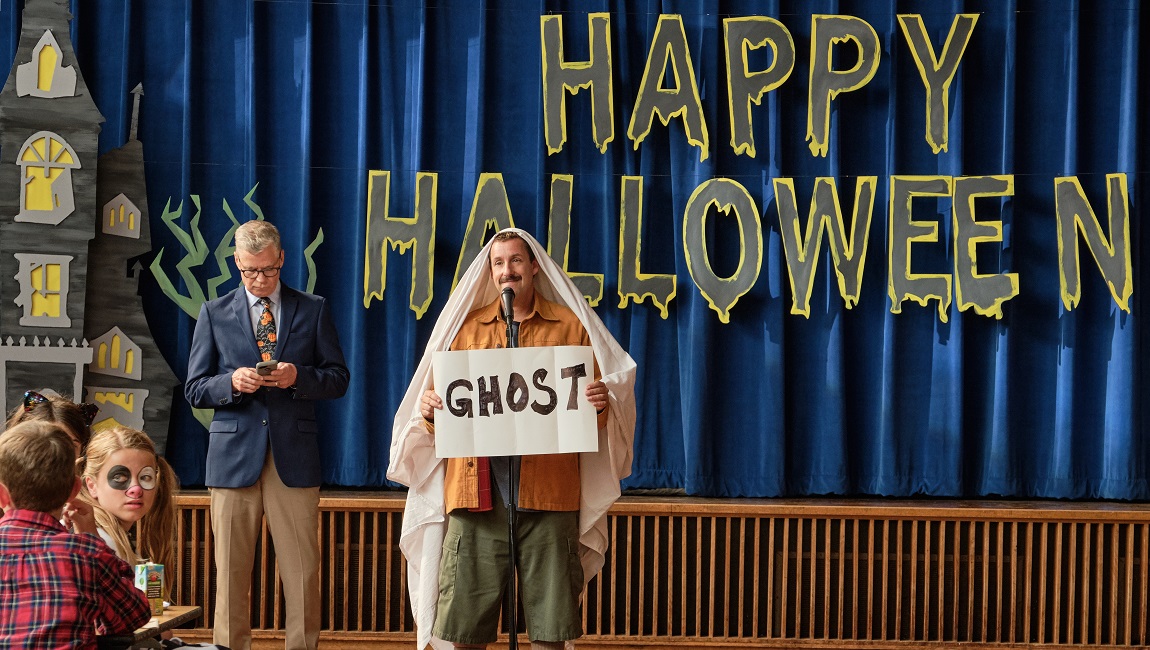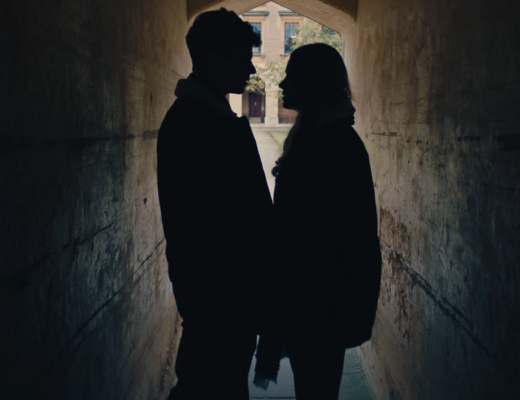Late career Adam Sandler thrives within Netflix’s low stakes, and Hubie Halloween is his most buoyant effort yet.
For the better part of a decade, most highbrow types generally believed that Adam Sandler — and to a lesser extent, his stable of Happy Madison directors, producers, and actors — frequently released lazy, annoying, mean-spirited, lowest-common-denominator entertainment, the type that any sane person with a semblance of “taste” would gawk at. Yet, if one considers the consensus reception of Sandler’s films, as opposed to the individual responses to each, one begins to notice a recent shift in critical sensibility, slowly, but firmly tilted in the Sandman’s favor. Perhaps this is due to the fact that termite talents like Sandler and Co. operate best in the low stakes environment of the Netflix-produced original, or that age has rounded out some of the more outdated sensibilities associated with Happy Madison’s productions; one might also suspect this is to do with how en vogue it has recently been to make the claim — once considered ridiculous — that… Adam Sandler is actually a pretty good actor (!?!). Of course, this praise is focused on prestige performances in creative bankrupt works — like the childish, post-modern grab bag of exasperatingly stupid tricks that is Punch-Drunk Love — with the nadir being the frantically nihilistic and frequently moronic Uncut Gems. The latter work tarnishes the Sandler ethos, amping up the spectatorial schadenfreude that comes from watching a mocked clown get slapped around for an hour and a half, without ever engaging with the morals or ethics that have defined the iconoclast’s most emotionally effective work; Paul Thomas Anderson and the Safdie Brothers seem to believe themselves better than Sandler, a juvenile notion in keeping with their childish posturing.
Thankfully, Hubie Halloween is helmed by Steven Brill — who was last seen behind the camera for Sandy Wexler, which InRO contributor (and fellow Sandler acolyte) M.G. Mailloux beautifully characterized as a “Griffith-esque morality play (but, like, not one of the racist ones).” And while, unfortunately, noted DP Dean Semler — aka the dude who shot Apocalypto — doesn’t return, Brill’s mise-en-scène is so richly detailed one hardly notices: as opposed to the indoor spatial depth one finds in Sandy Wexler, Brill and cinematographer Seamus Tierney instead luxuriate in wide-angle exterior shots and deep-focused visual gags (mostly involving a multi-purpose thermos) that would make the likes of Darius Khondji blush. The film needs this expansive sense of space to map out the grand adventures of one Hubie Dubois, the latest Sandler man-child who, yes, talks in a funny voice and lives with his mom — but who, more importantly, attempts to help others in a manner that they refuse to reciprocate. This humanist regard is also extended to the large supporting cast as well — including Ray Liotta, who wears a humorously giant afro at one point, and Maya Rudolph, who plays one of Hubie’s sexually frustrated bullies. Sandler, a man whose biggest flaw is that he’s too generous with the goodwill he provides others, has always been more than willing to let his co-stars upstage him when it best suits the carefree rhythm the narrative follows. Instead of the haptic, miserable experience of Uncut Gems, Hubie is Sandler’s most wholesome outing thus far — and, if anything, serves as the anthesis to the Safdies; they asked us to succumb to hedonism, but Brill implores us to embrace optimism. You can call it “not having taste” or dismiss it as contrarianism — either way, Adam Sandler still doesn’t give a shit, and Hubie Halloween is still just as excellent.
You can currently stream Steven Brill’s Hubie Halloween on Netflix.







